Craig Hutchison torched SEN’s financial state after buying radio network, according to former boss
Craig Hutchison turned profitable Melbourne radio station SEN broke by overpaying presenters and going on a wild spending spree, according to his former boss.
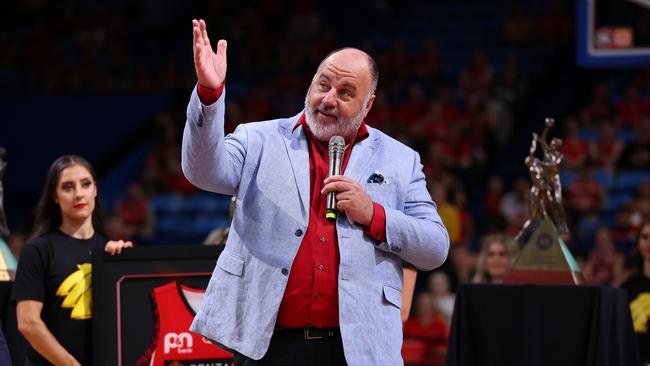
Companies
Don't miss out on the headlines from Companies. Followed categories will be added to My News.
Craig Hutchison has turned a profitable radio station into a bottomless money pit by overpaying presenters and going on a wild spending spree, his former boss claims.
The embattled sports reporter turned business owner is furiously trying to put out financial fires at his company which owns the SEN radio station network, the Perth Wildcats and a new netball franchise.
Hutchison’s company lost $9.2 million last year and must find a way to pay out a $28 million Commonwealth Bank loan by August next year.
His interest rate was expected to at least double when his current loan expires.
And industry sources say he’s paying SEN Mornings host Gerard Whateley more than $500,000 a year, even though he’s delivering half the ratings of the man he replaced, Kevin Bartlett.
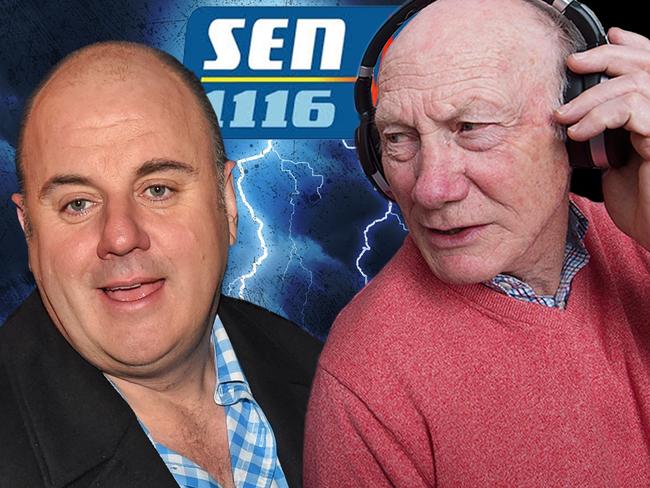
The Richmond legend was paid only $150,000 a year on SEN.
Bartlett rated 4.7 in 2017 before he was moved out of the slot by Hutchison, while Whateley’s results released this week were 2.4, according to radio ratings analysts GfK.
Now radio veteran Graham Mott, who ran 3AW for more than a decade and SEN for six months before Hutchison took over, has questioned his judgement.
“They have assets but they have paid too much for them and when I say too much I mean way too much,” he said.
He said he was referring to Sydney 2CH and Brisbane 4QK and “their other so called assets are stations with very low power that rarely get past the main street of the town; we’re not talking about good assets.”
Hutchison paid $11.2 million for 2CH in 2020 – double its $5.5 million price tag when it was previously sold in 2017.
He handed over $12 million for Brisbane’s 4KQ in 2022.
Both stations were rebranded as part of the SEN network and switched to a sports format.
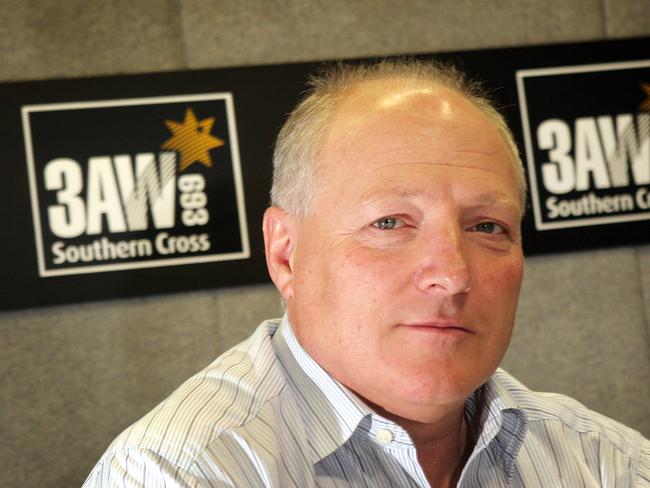
Hutchison also paid $8.5 million in 2021 for the Perth Wildcats, which this week had a “buy one get one free” ticket offer.
Mott was general manager at Melbourne radio powerhouse 3AW between 1995 and 2008.
“I fired Hutchy from 3AW in 2007. His performance on air was appalling. I got rid of him,” he said.
Mott took over SEN from former chief executive Barrie Quick before Hutchison formally took over the company in January 2018 following a stock market deal.
“I left just before (Hutchy arrived); I saw what it produced, it was well set up,” he said.
“I managed SEN for six months after Barrie left. The business was in very good shape and it had a low cost base. It was making a reasonable profit.”
This masthead sent a detailed list of questions to Hutchison on Thursday, and further questions including details of Mott’s comments on Friday.
Mott said the decision to hire Whateley to take over SEN’s mornings slot was ill-advised.
“Hutchy got rid of people who were performing and replaced them with higher paid people,” he said.
“The station got too cerebral. Gerard Whateley is an accomplished broadcaster but his relationship with the SEN audience isn’t there.”

Industry sources claim Hutchison forked out more than $500,000 a year to lure Whateley across from the ABC – more than three times Bartlett’s wage.
Whateley was contacted for comment about his wage and Mott’s comments, while Bartlett, 76, declined to comment.
Hutchison grew up in Warragul in country Victoria.
He started his journalism career at the Herald Sun’s sport section and also worked as Channel 7’s Melbourne sports reporter.
Hutchison took over as host of Channel 9’s Footy Show after the departure of Garry Lyon.
Eddie McGuire ended up coming back to the Footy Show in July 2017, replacing Hutchison.
Less than six months later, Hutchison was taking control of SEN.
He had signed an exclusive agreement with the AFL for the radio rights in a $10 million deal in 2016 – paying double what they were previously worth.
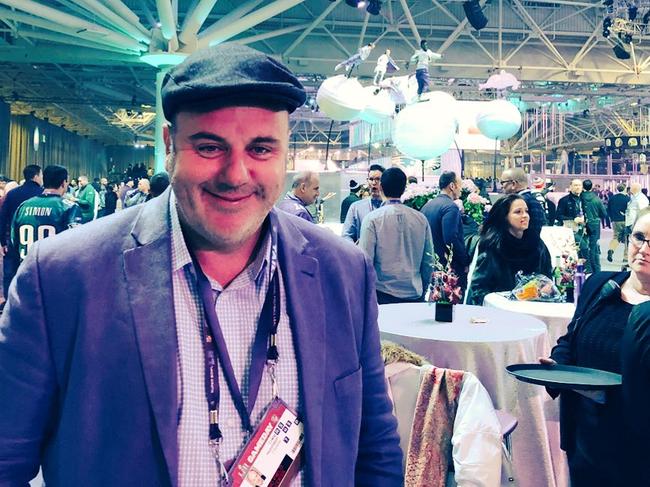
Hutchison was on good terms with former AFL chief executive Gillon McLachlan, and was one of a select few invited to an exclusive leaving party in Chapel Street, Melbourne, during grand final week.
McLachlan had been in good spirits, roasting Hutchison at an earlier function in September by making a reference to how many advertisements get crammed into SEN programs.
“The Blues thought it was another wasted year and supporters flooded talkback radio to vent their anger; some of you are here tonight,” McLachlan said.
“SEN loved it. Hutchy repackaged all the calls and turned them into individual podcast episodes with 10 different sponsors in each one.
“Hutchy is the only man I know who called me once for a private chat and we had to stop for an ad break in the middle of the call.”
He hired Richard Simkiss on a $400,000 a year salary at SEN after he had resigned as the AFL’s commercial manager.
Hutchison has also purchased the AFL Record and a new netball franchise he has dubbed the Melbourne Mavericks.
The netball side will replace the Collingwood netball team, which was linked to the powerhouse AFL club.

Collingwood was losing more than $1 million a year on the netball team before it walked away, even though it was able to save costs by using some of the football club’s facilities and administration.
Hutchison said he was unable to respond to a detailed list of questions directly, however said he would have more announcements soon.
He also sent out a letter to all staff this week, which was leaked to this masthead, playing down stories about the state of the company’s finances.
“These reports highlighted our recent expansion of the national radio footprint, which will better serve our clients and improve our audience reach,” he told staff.
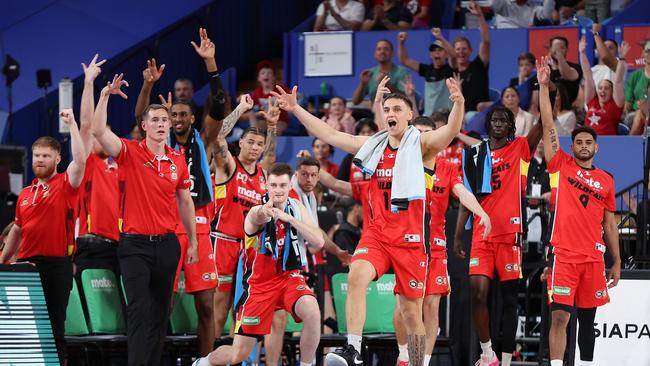
“Naturally, this investment incurred significant upfront operational costs and accordingly were reflected in the reported results.
“While we’re not immune from some of the macro-economic pressures such as increased inflation or interest rate rises … we’re aware of those and continue to manage the business.”
Hutchison has been a polarising figure in the media, with his business interests followed closely.
Mott said the “chickens were coming home to roost”.
“If you, over a period of time, make enemies in the media they don’t forget and they cheer like it’s New Year’s Eve when you fall down,” he said.





